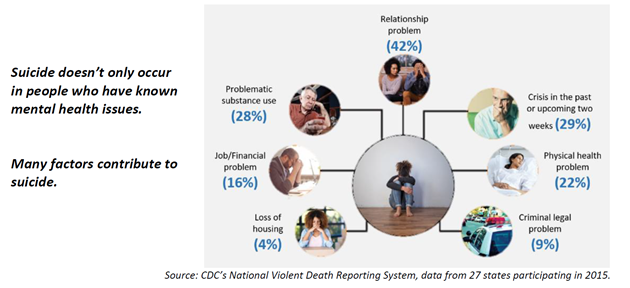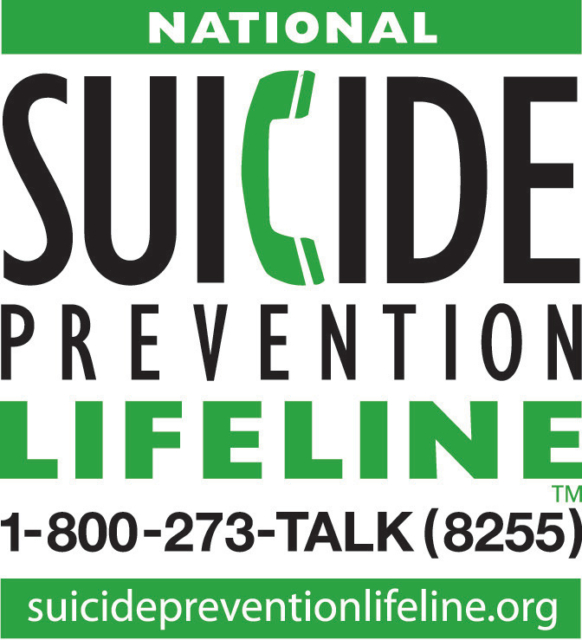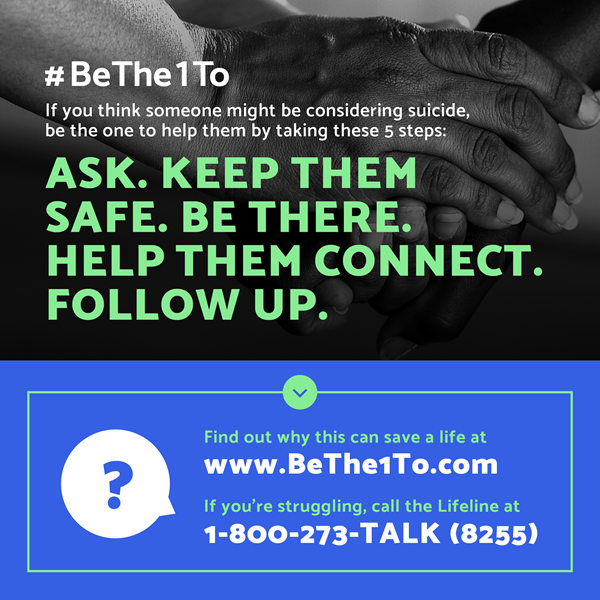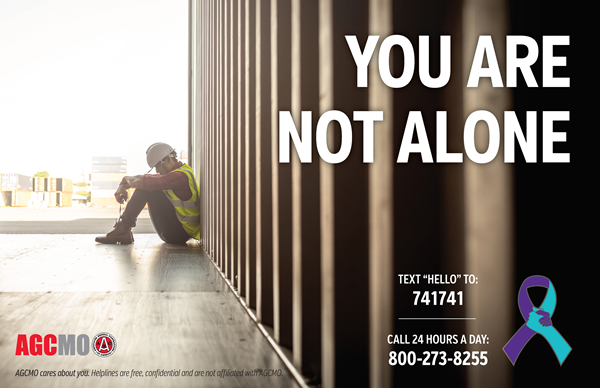Construction Industry Suicide Rate is Four Times the National Average
Stress, early morning hours, and late nights for construction employees are taking a toll on our industry.
According to the Centers for Disease Control and Prevention (CDC), the construction industry has the second-highest suicide rate among all occupations; in fact, the suicide rate in the construction industry is 4 times higher than the general population. (The farming, fishing, and forestry industry has the highest rate of suicides nationally.)
The industry’s male-dominated “tough guy” culture likely plays a role in the high rate of suicide, as employees don’t feel comfortable talking to their coworkers or managers about mental health issues. Other risk factors specific to the construction industry include:
- Seasonal & unsteady employment
- Travel away from home
- High pressure to produce on time
- Physically-demanding work & chronic pain
- Industry with highest rate of prescription opioids
- Sleep disruption
- Culture of substance abuse
- Fearlessness & risk-taking
- Access to lethal means (firearms & job site hazards)
How big is the suicide problem overall?
- Suicide is the 10th leading cause of death in the US and climbing.
- There were nearly 45,000 suicides in the US in 2016 (more than deaths from motor vehicle crashes).
- Males account for almost 4 out of 5 suicide deaths.
Suicide in Missouri is alarming
- On average, 1 person dies by suicide every 7 hours in Missouri.
- Missouri is ranked 13th highest in overall suicides (10th leading cause of death in Missouri).
- 2nd leading cause of death among 10-34 year olds
- 4th leading cause of death among 35-54 year olds
- 76% of those who died by suicide were male and 92% were Caucasian.
- Rates have increased by over 30% in Missouri since 1999.

Know the Warning Signs
Some warning signs may help you determine if a loved one is at risk for suicide, especially if the behavior is new, has increased, or seems related to a painful event, loss, or change. If you or someone you know exhibits any of these, seek help by calling the Lifeline.
- Talking about wanting to die or to kill themselves
- Looking for a way to kill themselves, like searching online or buying a gun
- Talking about feeling hopeless or having no reason to live
- Talking about feeling trapped or in unbearable pain
- Talking about being a burden to others
- Increasing the use of alcohol or drugs
- Acting anxious or agitated; behaving recklessly
- Sleeping too little or too much
- Withdrawing or isolating themselves
- Showing rage or talking about seeking revenge
- Extreme mood swings
Hope Can Happen
Suicide is not inevitable for anyone. By starting the conversation, providing support, and directing help to those who need it, we can prevent suicides and save lives.
We Can Act
This is National Suicide Awareness Week and September is the nationally designated month for suicide prevention. The first step to address this problem is to begin to talk about the issue.
The Center for Worker Protection from Washington University has developed 5 safety toolbox talks for jobsite presentations during National Suicide Awareness Week (or anytime, for that matter). These are included in the attachments below.
Suicide Prevention Toolbox Talks.pdf
Evidence shows that providing support services, talking about suicide, reducing access to means of self-harm, and following up with loved ones are just some of the actions we can all take to help others.
The National Suicide Prevention Lifeline is a national network of local crisis centers that provides free and confidential emotional support to people in suicidal crisis or emotional distress 24 hours a day, 7 days a week. It is committed to improving crisis services and advancing suicide prevention by empowering individuals, advancing professional best practices, and building awareness.

You can learn more about suicide prevention by contacting Matt Cowell, the Vice-President of Safety for the AGC of Missouri (), visiting www.SuicidePreventionLifeline.org, and numerous other websites. You can also gain insight, information, and help by searching #YouAreNotAlone and #BeThe1To on most social media sites.

Remember, suicide is a permanent solution to a temporary problem.
Somebody depends on you!
(We appreciate the AGC of Missouri and The Suicide Prevention Lifeline for providing this important information.)


